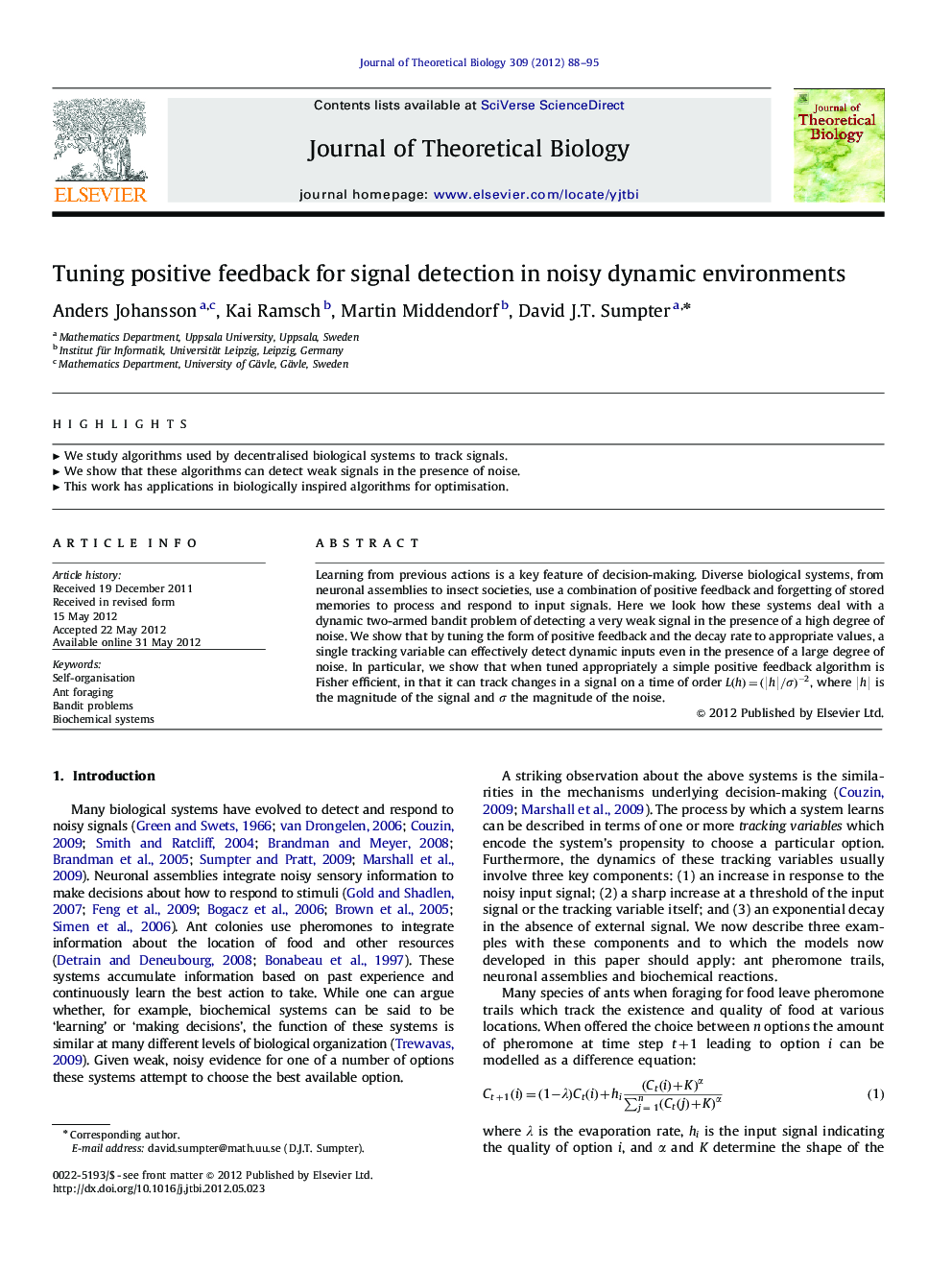| Article ID | Journal | Published Year | Pages | File Type |
|---|---|---|---|---|
| 4496612 | Journal of Theoretical Biology | 2012 | 8 Pages |
Learning from previous actions is a key feature of decision-making. Diverse biological systems, from neuronal assemblies to insect societies, use a combination of positive feedback and forgetting of stored memories to process and respond to input signals. Here we look how these systems deal with a dynamic two-armed bandit problem of detecting a very weak signal in the presence of a high degree of noise. We show that by tuning the form of positive feedback and the decay rate to appropriate values, a single tracking variable can effectively detect dynamic inputs even in the presence of a large degree of noise. In particular, we show that when tuned appropriately a simple positive feedback algorithm is Fisher efficient, in that it can track changes in a signal on a time of order L(h)=(|h|/σ)−2L(h)=(|h|/σ)−2, where |h||h| is the magnitude of the signal and σσ the magnitude of the noise.
► We study algorithms used by decentralised biological systems to track signals. ► We show that these algorithms can detect weak signals in the presence of noise. ► This work has applications in biologically inspired algorithms for optimisation.
